Dialectical behavior therapy is a type of therapy focused on acceptance and behavior change. It evolved from cognitive behavioral therapy for the purpose of treating borderline personality disorder. This therapeutic approach targets extreme emotions and relationship management. The key to understanding the benefits of dialectical behavior therapy lies in the word “dialectical.” Simply put, dialectical refers to opposing forces, which in this case are acceptance and behavior change. While those may seem opposed, engaging both is key to progress for people participating in dialectical behavior therapy.
Learn more about Athens Recovery’s dialectical behavior therapy program by reaching out to 844.959.4998.
How Dialectical Behavior Therapy Works
Before getting into some of the top dialectical behavior therapy benefits, it is worth explaining just how dialectical behavior therapy works. Dialectical behavior therapy, or DBT, emphasizes four distinct aspects. These are mindfulness, distress tolerance, emotional regulation, and interpersonal effectiveness.
Mindfulness focuses on exploring a client’s thoughts, emotions, and actions. This is typically where DBT begins as a method for guiding the client toward an initial acceptance of where they are at the start of therapy. Distress tolerance is another component geared toward acceptance. This element refers to managing negative emotions, implementing coping mechanisms, and processing challenges and stressors in healthy ways.
Emotional regulation extends and builds upon distress tolerance by implementing action. It begins with just identifying emotions and learning to recognize what you are feeling at different moments. Yet this aspect of therapy ultimately leads to the development of skills that help reduce extreme emotions, create more regular positive emotions, and cope with intense emotions when they do appear.
Lastly, interpersonal effectiveness is concerned with improving communications skills. Addiction can impact your relationships and make it difficult to rebuild trust with loved ones, but through DBT, you can reconnect with loved ones and work towards a better place relationally.
Benefits of Dialectical Behavior Therapy
The benefits of DBT make it an effective approach to addressing numerous mental health concerns. It is also applicable for treating addiction or in the case of co-occurring disorders where addiction and a mental health issue coexist.
1. Improves Relationships
DBT focuses on repairing relationships by equipping clients with communication and advocacy skills. Healthy relationships contribute to a strong support network, which in turn improves mental health and helps people in recovery from addiction.
2. Develops Real-World Skills
The benefits of DBT are perhaps most visible in how it pushes people to develop real-world skills. These can be applied right away as they are learned and practiced during therapy sessions. This in turn helps people connect the dots between what happens in therapy and their long-term goals as they notice actual progress.
3. Boosts Quality of Life
Constantly dealing with extreme emotions is exhausting. One of the best DBT benefits for many people is the way it boosts their overall quality of life by nudging them toward actual behavior change with positive impact.
4. Teaches Coping Mechanisms
Part of making life changes is learning new behaviors. DBT equips people with coping mechanisms and methods for dealing with stressors that might otherwise lead to spirals of negative emotions.
5. Unearths Root Causes of Addiction
The self-exploration and acceptance inherent to DBT means participants are able to get at the root causes of their addiction or emotional distress. By identifying the root causes, therapy is able to work toward holistic transformation that delivers lasting change.
Discover Dialectical Behavior Therapy Benefits at Athens Recovery
Find out how dialectical behavior therapy benefits could help accelerate your progress in recovery. Reach out to 844.959.4998 today to learn more about how Athens Recovery utilizes DBT in treating addiction and mental health disorders.

